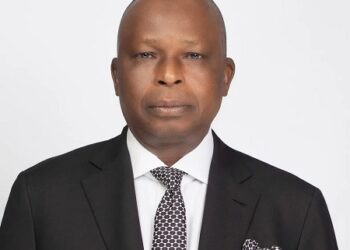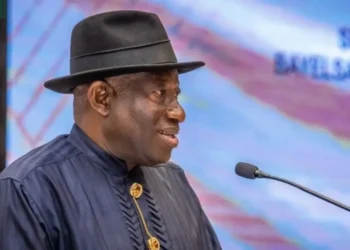
A former Commissioner, National Electricity Regulatory Company (NERC), Mr. Eyo Ekpo, has said Nigerians “waste” N12 trillion every year, considerably higher than the national budget, by self-provision of power with backup generators rather than being supplied from the national grid.
According to him, Nigerian homes and businesses produce 40,000 megawatts (Mw) of electricity with diesel and petrol generators daily while they are supplied only about 4,000Mw through the national grid. Ekpo likened this to “burning money” because of the N40 per kilowatt per hour difference between the cost of self-generated power (about N130 per kilowatt hour) and grid power (N90 per kilowatt hour).
He spoke during the European Business Chamber (EuroCham Nigeria) stakeholder conference on “Gaining Traction in Power Sector Reforms” held at Eko Hotel and Suite, Lagos. The conference was organised to galvanise policy reforms that will unlock investment in the power sector and deliver stable electricity supply to Nigeria.
Ekpo criticised the “patronising” decision of the government to hold down electricity tariffs, saying “Nigerians want reliable supply of electricity through the national grid, Nigerians do not want low tariffs for grid-supplied power.”
He argued that there is no shortage of electricity in the country, adding that Nigerian homes and businesses provide themselves 10 times more electricity through petrol and diesel generators than the country’s electric power companies supply them through the national grid. Mr. Ekpo pointed out that the real problem with the power sector is that Nigeria is stuck with a power delivery model that is “extremely costly and inefficient”.
He explained that government’s decision to keep power tariffs low condemns Nigerians to perpetual dependence on “extremely expensive” backup generators as it starves the power sector of critical investment. Nigerians will not have reliable supply of cheaper electricity from the national grid until investors see a tariff that can cover the cost of the investment required to provide it, he posited.
Ekpo said the problems of the power sector are rooted in governance challenges rather than technical or financing difficulties. He noted that on the part of the government, “policy making and regulation have not been focused or comprehensive”, hence have not attracted the appropriate levels of (private sector) investment. He also noted that private firms in the sector also have governance challenges.
Ekpo, who was former Commissioner of Market Competition and Rates at the NERC, said the privitisation of the power sector in 2013 has not achieved its aims because Nigerians still overwhelmingly depend on backup generators.
“As at the time of privatization, average capacity delivered to the country via the national grid was about 3,400Mw. There has been a 20 per cent growth to about 4,200Mw. But our population in the same period has grown by 24 per cent, from about 175 million to 212 million. The number electricity customers have more than doubled. Backup power supply has doubled, growing exponentially to about 40,000Mw,” he said.
He blamed the failure to increase power generation and supply to homes and businesses through the national grid partly on the fact that the privitisation exercise did not attract quality power sector investors. According to him, “we had a group of people who had to depend on borrowing and expected that inflow from the market would be able to help them pay back but that hasn’t worked out”.
Ekpo said the government failed to invest the $3.5 billion it got from selling 60 per cent of shares in the power sector companies to private investors in expanding the capacity of the sector. The government handed over the proceeds of the partial privatisation to the workers in the sector as severance payment. “Secondly, the government still held on to 40 per cent of equity in the DisCos, but could then not put up the cash to support the capital and expansion requirements of those DisCos,” he said.
Ekpo also urged the Federal Government to deepen power sector reforms by privatising the nation’s transmission network.
Nigeria’s current electricity generation stands at about 4,000Mw but the generating companies have an installed capacity of 13,000Mw. The transmission system has the capacity to move only between 5,000-7,000Mw (there are various estimates of the “wheeling capacity”) of electricity from the generating companies to the Distribution Companies (DisCos).
Also speaking at the event, the Managing Director of Siemens Nigeria, Seun Suleiman, said one of the “low hanging fruits” in the sector is to increase the capacity of the transmission system to deliver more of the about 7,000 in “fallow capacity” in generation companies to distribution companies.
The Minister of Power, Mr. Abubakar Aliyu, represented by Mr. Emmanuel Nosike, the Director of Transmission in the Ministry of Power, had stated that his priority is increasing the capacity of the transmission system. Nosike however noted that the DisCos are incapable of taking additional power from the transmission system. According to Mr. Nosike, this is because the DisCos cannot invest in the required equipment as “their balance sheet is red”.
Without improvement in the capacity of the transmission system, there will be no new investment in increasing Nigeria’s generation capacity. Nosike said Nigeria requires 42,000Mw of electricity; the country has 13,000 Mw installed capacity of which the national grid has the capacity to wheel and deliver only about 4,000Mw to homes and businesses.
Without the development of a flexible tariff system that allows investors to cover their cost, there will not be new investment in increasing the generating, transmission and distribution capacities of the national grid. Hence, without reforms of the power sector “gaining traction”, Nigerians will continue to rely on very expensive and highly polluting power from generators which currently accounts for 80 per cent of power supply in the country.
Experts at the conference all bemoaned the huge constraint that Nigeria’s reliance on expensive backup generators imposes on investment, employment creation and economic growth.
The EuroCham Nigeria, hitherto known as European Business Organisation (EBO) Nigeria, was founded by 18 European companies in October 2018 at the 7th EU-Nigeria Business. Membership has grown to 35 companies with some of the companies being Nigerian firms that conduct business with European partners. EuroCham is a member of the EBO Worldwide Network representing European business interests in markets outside the European Union (EU) that seeks to further promote trade, investments and exchanges with European business, as well as advocating European quality standards, best practices and corporate social responsibility and opening access to an active network channel in over 45 key markets that serves European multinationals.







